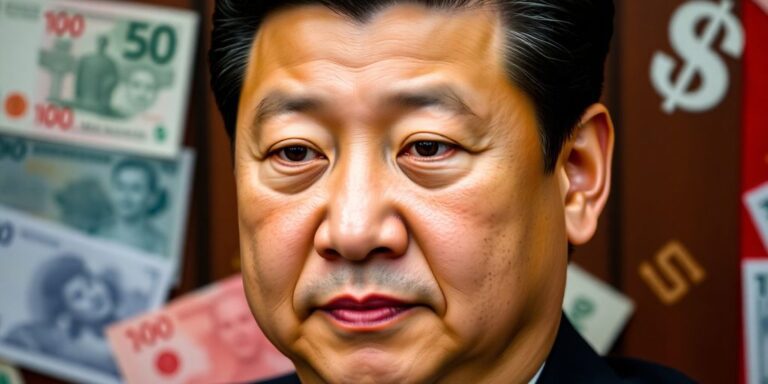Table of Contents
China’s financial sector is undergoing significant changes as President Xi Jinping enforces strict regulations aimed at promoting ‘common prosperity.’ This initiative has led to the arrest of numerous banking officials and the implementation of salary caps, reflecting a broader campaign to align the financial industry with the Communist Party’s goals.
Key Takeaways
- President Xi Jinping’s campaign targets the financial sector to promote ‘common prosperity.’
- Major bank executives are under investigation, leading to arrests and salary cuts.
- The campaign is part of a broader effort to combat inequality amid economic slowdown.
The Push for Common Prosperity
In recent years, the Chinese Communist Party (CCP) has intensified its focus on the concept of ‘common prosperity,’ a slogan that emphasizes reducing inequality and ensuring that wealth is distributed more evenly across society. This initiative has gained traction since Xi Jinping’s speech in August 2021, where he called for a more equitable economic model.
The financial sector, once viewed as a pathway to success, is now being scrutinized for its role in perpetuating wealth disparities. The CCP is pressuring financial institutions to prioritize social responsibility over profit maximization.
Investigations and Arrests
As part of this campaign, the Central Commission for Discipline Inspection has launched investigations into several high-profile banking executives. The crackdown has resulted in:
- Dozens of arrests of officials from major state-owned banks and investment firms.
- Salary cuts for top executives as a means to curb extravagant spending.
- Public denunciations of the financial sector by government officials, reinforcing the message that the industry must align with the Party’s vision.
One notable case is that of Liu Liange, the former chairman of the Bank of China, who was sentenced to death with a suspended sentence for accepting bribes totaling €15 million in exchange for approving loans exceeding €400 million. This case exemplifies the CCP’s commitment to rooting out corruption within the financial sector.
Impact on the Financial Sector
The enforcement of these regulations is reshaping the landscape of China’s financial industry. Key impacts include:
- Increased Compliance Costs: Banks are now required to invest in compliance measures to adhere to new regulations, which may affect their profitability.
- Shift in Investment Strategies: Financial institutions are likely to adjust their investment strategies to align with the Party’s goals, focusing more on projects that promote social welfare.
- Potential Brain Drain: The crackdown on high salaries and the overall atmosphere of scrutiny may deter talent from entering or remaining in the financial sector.
Conclusion
President Xi Jinping’s enforcement of financial regulations marks a significant shift in China’s approach to its financial sector. By prioritizing ‘common prosperity’ and cracking down on corruption, the CCP aims to create a more equitable economic environment. However, the long-term effects of these measures on the financial industry and the broader economy remain to be seen. As the situation evolves, stakeholders will need to navigate the complexities of compliance and the changing landscape of China’s financial regulations.
Sources
- China’s Xi Jinping brings finance to heel with arrests and salary caps, Le Monde.fr.
- China’s Xi Jinping brings finance to heel with arrests and salary caps, Le Monde.fr.








